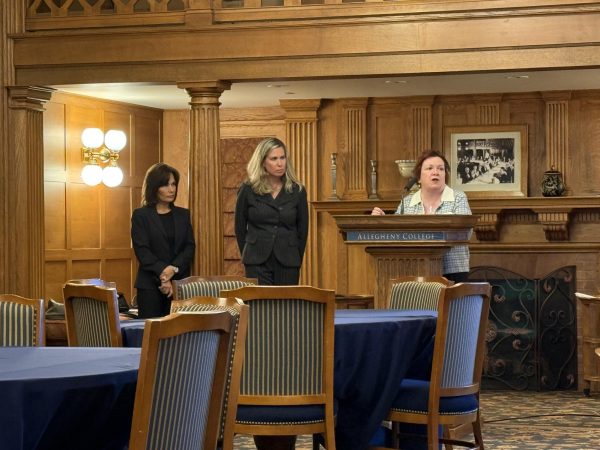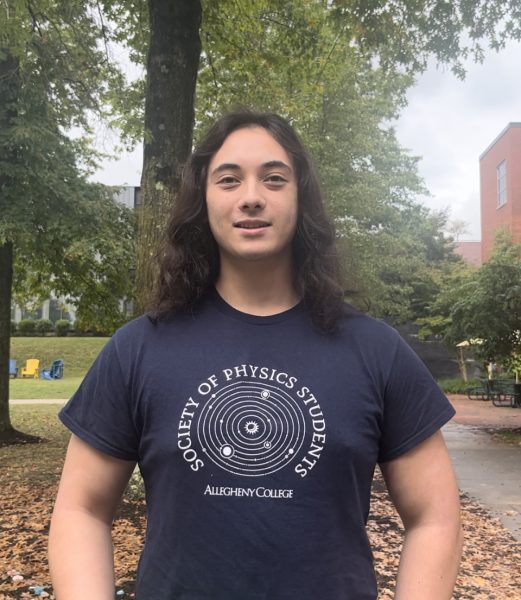Miryam Hazan brings International Perspective to Immigration Policy
In immigration policy, morality and economic beneficence can go hand in hand — at least they can according to immigration specialist Miryam Hazan.
Hazan spoke Thursday, Oct. 3, at Tippie Alumni Center about how immigration policy has changed within Central America. Hazan works at the Organization of American States, a regional organization dedicated to promoting collaboration among states in the Americas.
Hazan began the lecture by reminding the attendees that many of their ancestors were immigrants. Hazan said this was not necessarily to point out the hypocrisy of xenophobia toward immigrants, but to show how migration can be viewed from different perspectives.
Hazan spoke about how countries in the Americas are now struggling to determine immigration policy. The movement of people is often for economic reasons — many of them are not solely seeking political asylum. In addition, Hazan dispelled the misconception that most migrants are poor, given that it costs money to cross borders.
“There is a benefit in protecting rights, and economic benefit apart from the moral case that we make about those things in life,” Hazan said. “And actually, migration is in some ways a form of development.”
Interactions between states determines how international immigration policy is enforced, according to Hazan.
Despite many states’ statements about protecting human rights, that does not mean they are resolute to support asylum seekers.
“It became politically incorrect to not protect rights,” Hazan said.
The importance of protecting the rights of migrants goes beyond humanitarian morals, according to Hazan. Migrant workers without rights have a poor impact on the economy of a nation. When migrant workers aren’t given fair wages “everyone loses, because that pulls wages down,” Hazan said.
Hazan put immigration policy into an international context and informed students about different approaches states have taken in the refugee crisis. Hazan spoke not only about the development of immigration policy, but also contemporary approaches.
An example Hazan gave is how the U.S. is progressively seeking to use a security-based approach.
“(This) means emphasizing security, and in many ways trying to take away rights that were granted to minor populations.” Hazan said. “The response has been more to close the doors rather than to receive populations.”
Hazan spoke about different ways to perceive human movement that depart from the limited view of migrants as displaced people.
“There’s a lot of partisanship and rhetoric swirling around the issue of migration,” said Aubrey Hall, ’22, during her introduction of Hazan. “It becomes all the more important, I think, to reap ourselves in a kind of empirical evidence.”
Hazan moved the discussion of immigration from U.S.-centric discourse on Mexico to other states in the Americas.
“So many countries of the Americas were very much shaped by immigration, the way the U.S. was also shaped by immigration,” Hazan said.
For example, Venezuela is mentioned as having attracted migrants from Colombia not only because of Venezuela’s booming economy at the time, but also due to Colombia’s internal conflicts.
Along with giving examples of the way immigration has shaped multiple states, Hazan contrasted the different directions migrant policy takes in different parts of the world.
“It is interesting to notice that the advanced world, meaning Europe and the U.S. and Australia, has moved to, in what we call in immigration stories, a security-based approach,” Hazan said. “Latin America actually moved for the past two decades to what we call a rights-based approach.”
Hazan also spoke about the importance of both domestic migration policy and international policy on migration. Trevor Mahan, ’21, said this surprised him.
“I thought it was up to the individual countries to sort of make their own policies,” Mahan said.
Hazan explained the Protocol of Cartagena de Indias, an international agreement that changed the definition of “refugee” to include displacement from environmental conditions.
“All of this international law is actually really proggressive,” Mahan said.
Hazan mentioned how the progressive international policy is in place, but it requires funding to be enforced. Hazan also spoke about how “the responses we’ve seen in Europe and the U.S. … have been more to close the doors rather than to receive populations.”
Hazan’s lecture also touched on the changing immigration policy in the U.S.
“The Trump administration has changed these principles a lot,” Hazan said. “If you have been in the U.S. for less than two years, … and you have been detained, you do not need to pass through a judge.”
In international agreements, Hazan stated that the U.S. is “forcing these countries to sign so that people will not be able to come all the way to the U.S.”
Ultimately, Hazan’s speech was about international policy and how it must be developed to solve the refugee crisis. Hazan said she does not divorce herself from the heart of the issue, but speaks about how the pragmatic reality of policy development can be in the best interest of the people.
“Migrants could become a very good thing,” Hazan said. “But they also need the support of the international community.”





